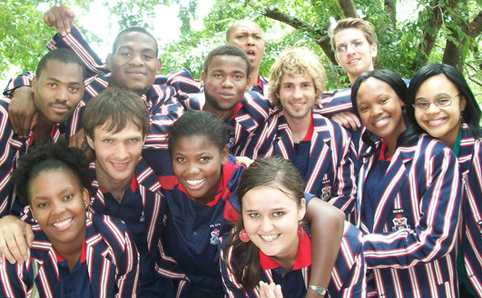 |
|
The Interim Student Council (ISC) of the University of the Free State (UFS)
|
The Interim Student Council (ISC) of the University of the Free State (UFS) decided to search its own heart in order to alleviate poverty amongst its students.
Thirteen university students recently received bursaries for the purchasing of books at an event at a coffee house on campus.
Ms Modieyi Motholo, ISC chairperson, indicated that she noticed during the registration period that students were struggling to purchase text books, after which she and her team graciously made money from their budget available for the bursary. “We decided at the start of our term to serve the students and to look after their needs. In this case, we noticed a need amongst students and thus reacted to that,” she said.
Bursary holders had to meet certain criteria, amongst which the overcoming of socio-economic circumstances. At the event they were also awarded certificates of felicitation as well as rewards for their hard work.
Modieyi, on behalf of the ISC, voiced their hope that future student leaders would continue with this project.